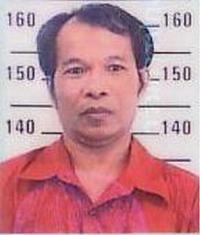Discussion: Application of Interpretive Theory in Modern Translation Thread poster: jssnowden
|
|---|
jssnowden 
United Kingdom
Local time: 10:04
French to English
+ ...
Hello all,
I am a current postgraduate student at Durham University, UK. Throughout our MA in Translation Studies, there is significant emphasis on translation theory studying such notable scholars/translators as Newmark, Pym, Murray, Jakobson etc., all of whom are mentioned, quite rightly, on the forums as key publications of further reading on translation theory.
In a recent research assignment, I focused on the 'Interpretive Theory of Translation' (<... See more Hello all,
I am a current postgraduate student at Durham University, UK. Throughout our MA in Translation Studies, there is significant emphasis on translation theory studying such notable scholars/translators as Newmark, Pym, Murray, Jakobson etc., all of whom are mentioned, quite rightly, on the forums as key publications of further reading on translation theory.
In a recent research assignment, I focused on the 'Interpretive Theory of Translation' (théorie du sense) as developed by Danica Seleskovitch (and later co-authored with Marianne Lederer, 1984). The theory, for those who might not be familiar with is, was developed as a way of understanding the psychological elements that interpreters experience whilst working.
The theory is broken down into three segments:
1) understanding the sense of the ST
2) de-verbalising the ST and making it language-independent
3) reformulation of the de-verablised ideas in the TL
Dr. Choi Jungwha uses Ernest Jones' writings on Sigmund Freud to demonstrate the full effect of this when she cites:
"Instead of laboriously transcribing from the foreign language, idioms and all, he would read a passage, close the book and consider how a German writer would have clothed the same thoughts ― a method not very common among translators. His translating work was both brilliant and rapid."
(Jones in Choi, 2003: 12)
In translation, the accuracy of the TT in relation to the ST author's meaning is paramount. My question, therefore, is 'as a professional translator*, do you believe that this Interpretive Theory of Translation could be utilised in your field of expertise on a day-to-day basis?'
*Translators only, please.
I look forward to hearing from fellow professional translators, especially those with greater experience than myself.
Kind regards,
Jonny
Jonny Snowden BA (Hons)
MA Translation Studies
Hatfield College, Durham University ▲ Collapse
| | | | Cécile A.-C.
United States
Local time: 05:04
Member (2010)
Portuguese to French
+ ...
| Totally agree if one wants to get a smooth read | Dec 3, 2015 |
in the target language. Too often, some translators remain tied up to references on the Internet with little credibility on how it is actually being used in the industry or trusting those with a broader experience especially in their native tongue.
| | | | | Localization stage | Dec 4, 2015 |
cecilea7 wrote:
in the target language. Too often, some translators remain tied up to references on the Internet with little credibility on how it is actually being used in the industry or trusting those with a broader experience especially in their native tongue.
In my translation, many stages are applied e.g. translate, proofread, review, verify, localize. To localize translation, source text contexts are respected but their source wordings are totally adjusted. If I were sticking with source words, translation idioms are badly distorted.
My conclusion: I agree with your idea but translation is still a critical step: not to forget source text nuances.
Soonthon L.
| | | | neilmac
Spain
Local time: 11:04
Spanish to English
+ ...
(My question, therefore, is 'as a professional translator*, do you believe that this Interpretive Theory of Translation could be utilised in your field of expertise on a day-to-day basis?')
No, basically because although translation and related theories can be interesting, I don't really know about their application in the real world. I'm usually so busy with actual work that stopping to think about things like that is a bit of a luxury. I even had to paste the question here in orde... See more (My question, therefore, is 'as a professional translator*, do you believe that this Interpretive Theory of Translation could be utilised in your field of expertise on a day-to-day basis?')
No, basically because although translation and related theories can be interesting, I don't really know about their application in the real world. I'm usually so busy with actual work that stopping to think about things like that is a bit of a luxury. I even had to paste the question here in order to address it properly, and I've looked at the summary of the theory several times and I'm not sure if I quite get the gist.
Even pinpointing what my " field of expertise" is would take up too much of my time ( I've been faffing about with e-mails, newspapers and now proz since I got up an hour ago and I really should be working)... ▲ Collapse
| | |
|
|
|
| It's not cut and dried | Dec 4, 2015 |
But that is how I deliberately try to work very often.
My source and target languages are closely related, and sometimes you end up with a word-for word sentence anyway.
On other occasions it is easy to produce a sentence that is strictly correct in English, but is a pain to read.
I read the source through before I start, note terminology and any idioms or good expressions I think of, and get the idea of the text. Then I work sentence by sentence, preferab... See more But that is how I deliberately try to work very often.
My source and target languages are closely related, and sometimes you end up with a word-for word sentence anyway.
On other occasions it is easy to produce a sentence that is strictly correct in English, but is a pain to read.
I read the source through before I start, note terminology and any idioms or good expressions I think of, and get the idea of the text. Then I work sentence by sentence, preferably with a CAT, but merge or split segments quite a lot in some texts.
I do a fair amount of legal and medical work, so I need to keep close to the source, but these texts have to be readable, or they are difficult to understand. Especially if they are written by professionals but will be used by non-professionals - medical records that the patient wants to read, or legal documents that employees and customers have to understand and abide by.
On other occasions I do translate more freely - and localise, e.g. marketing or press releases etc.
I can translate quite fast in bursts - for a translator - but I cannot interpret. I am not quick enough, and simply get the languages mixed up or run into a block. I think the mental process is quite different, or else I don't master the alternation between languages well.
I feel as if I have two native languages. Although I learnt my source language in my late twenties, it is now my language of habitual usage, and the language I speak at home to family and neighbours etc. I am surrounded by my target language as well, and speak it to the other half of the family, on holiday and so on.
My other languages are not 'languages of the heart', and I don't live in them the same way. I do occasionally translate from Swedish or Norwegian, and very occcasionally small passages of German or French. ▲ Collapse
| | | |
I think it depends what you're translating. For literary, journalistic and marketing texts, this approach could work very well. For technical material, it could be a recipe for disaster. At the end of the day, as Newmark said in "Paragraphs on Translation" (I think!), words are all we have as translators and we have to account for all the words on the page. He was, however, swift to point out that 'account for' does not mean slavishly replicate. Sometimes, accounting for all the words involves m... See more I think it depends what you're translating. For literary, journalistic and marketing texts, this approach could work very well. For technical material, it could be a recipe for disaster. At the end of the day, as Newmark said in "Paragraphs on Translation" (I think!), words are all we have as translators and we have to account for all the words on the page. He was, however, swift to point out that 'account for' does not mean slavishly replicate. Sometimes, accounting for all the words involves modulating and such like, which results in 'missing' words in the target text.
What you are talking about comes up in this discussion, especially at about 20 min when Ros Schwartz talks about translation as "painting with words".
https://www.youtube.com/watch?v=ChGyETKCja8
[Edited at 2015-12-04 13:53 GMT] ▲ Collapse
| | | | Samuel Murray 
Netherlands
Local time: 11:04
Member (2006)
English to Afrikaans
+ ...
Jonny Snowden wrote:
Throughout our MA in Translation Studies, there is significant emphasis on translation theory...
That is very good. The theorists have some very interesting ideas about how translation happens, and about what strategies one can use to translate. I think you'll find that as soon as you start doing translation for a living (i.e. no longer as a scholar), most of the theory will go out the door. Speed and reviewer/client satisfaction are the main drivers of professional translation (not absolute accuracy), and having a good ground in theory may ensure that at least some of the theoreticists' ideas stay close to the surface while you work, or surface whenever you re-evaluate your work.
In a recent research assignment, I focused on the 'Interpretive Theory of Translation' (théorie du sense) as developed by Danica Seleskovitch (and later co-authored with Marianne Lederer, 1984).
I'm not familiar with Seleskovitch's work, so I googled a bit and looked in books. Seleskovitch started out as an interpreter, and she changed the way interpreters are trained (she also changed the way interpreting is studied). I'm sure she did groundbreaking work... in her time, but her time was the sixties and seventies. Also, she seems to have had some misconceptions initially about how written translation works -- she used to think that most translators simply replace words and phrases. I'm not sure at what stage in her theory's development did she discover that translators actually do a lot less word/phrase-transcoding than untrained interpreters do.
In one article about Seleskovitch's work, I read this:
Prof. Seleskovitch quoted the experience by Freud that after he had read some parts from a book, all the original language disappeared from his memory within a few seconds, and then only the meaning of sense would occur to him so that he could re-express the idea in another language in a clear, natural way.
...and I must say that this happens to me as well, but it also happens to me when I read texts in my own language. After a few seconds, I can't remember the exact words, but I can remember the meaning of the passage. The problem is that I can't remember 100% of the passage... and neither will a person who uses strict de-verbalisation.
I would contend, therefore, that practising Seleskovitch's theory as a theory of translation would be impossible, unless you have a very, very good memory. Furthermore, some people think verbally whereas others think visually, and I get the impression that she believes that all people think visually. I think her theory may be a technique to improve one's translations, but not a theory of how translation itself is accomplished.
Instead of laboriously transcribing from the foreign language, idioms and all, [Freud] would read a passage, close the book and consider how a German writer would have clothed the same thoughts ― a method not very common among translators.
Personally, I think doing what Freud did would have been more "laborious" than simply transcoding the text.
One thing I must mention, in the light of that quote (perhaps you can tell me if I'm right):
Seleskovitch seems to ask "how will a TL author have written this", as opposed to "how will the SL author have intended the SL reader to understand this" or "what would the client want an SL reader to think". I think that that approach may be good only in literary or historical translation, in which it is assumed that the author of the source text always successfully writes what he intends to communicate.
In translation, the accuracy of the TT in relation to the ST author's meaning is paramount.
That is one opinion, yes. In my translation, what the author actually meant is not always that important. What the author was supposed to have meant is more important. This is because most of the texts that I translate have a purpose, and I usually know that that purpose is.
My question, therefore, is 'as a professional translator*, do you believe that this Interpretive Theory of Translation could be utilised in your field of expertise on a day-to-day basis?
The information from the theory can be useful, yes, though not as a theory of how translation works, but rather as a method of quality control on existing translations. In other words, you translate the way you always do, but then you re-evaluate what you've written, in the light of the strategies that flow from Seleskovitch's theory, to see if you can improve the translation a bit.
[Edited at 2015-12-04 12:38 GMT]
| | | | Usch Pilz
Local time: 11:04
English to German
+ ...
| Essential and ... | Dec 4, 2015 |
I translate mainly novels, and in this field the method described is essential. You want to deliver a text that reads well in the target language but still transports the vibes of the ST.
But the discussion is old:
How close do we have to stick to the ST? How far can we venture in our quest for the ultimate text? Translation? Localisation? Transcreation?
Most of us are making this decision many times over during our working hours, depending on the specific require... See more I translate mainly novels, and in this field the method described is essential. You want to deliver a text that reads well in the target language but still transports the vibes of the ST.
But the discussion is old:
How close do we have to stick to the ST? How far can we venture in our quest for the ultimate text? Translation? Localisation? Transcreation?
Most of us are making this decision many times over during our working hours, depending on the specific requirements of our clients, the target group, the type of text.
HTH
Usch ▲ Collapse
| | |
|
|
|
neilmac
Spain
Local time: 11:04
Spanish to English
+ ...
| The real world | Dec 4, 2015 |
Samuel Murray wrote:
I think you'll find that as soon as you start doing translation for a living (i.e. no longer as a scholar), most of the theory will go out the door. Speed and reviewer/client satisfaction are the main drivers of professional translation (not absolute accuracy),
[Edited at 2015-12-04 12:38 GMT]
My thoughts exactly.
| | | | To report site rules violations or get help, contact a site moderator: You can also contact site staff by submitting a support request » Discussion: Application of Interpretive Theory in Modern Translation | Wordfast Pro | Translation Memory Software for Any Platform
Exclusive discount for ProZ.com users!
Save over 13% when purchasing Wordfast Pro through ProZ.com. Wordfast is the world's #1 provider of platform-independent Translation Memory software. Consistently ranked the most user-friendly and highest value
Buy now! » |
| | Protemos translation business management system | Create your account in minutes, and start working! 3-month trial for agencies, and free for freelancers!
The system lets you keep client/vendor database, with contacts and rates, manage projects and assign jobs to vendors, issue invoices, track payments, store and manage project files, generate business reports on turnover profit per client/manager etc.
More info » |
|
| | | | X Sign in to your ProZ.com account... | | | | | |











